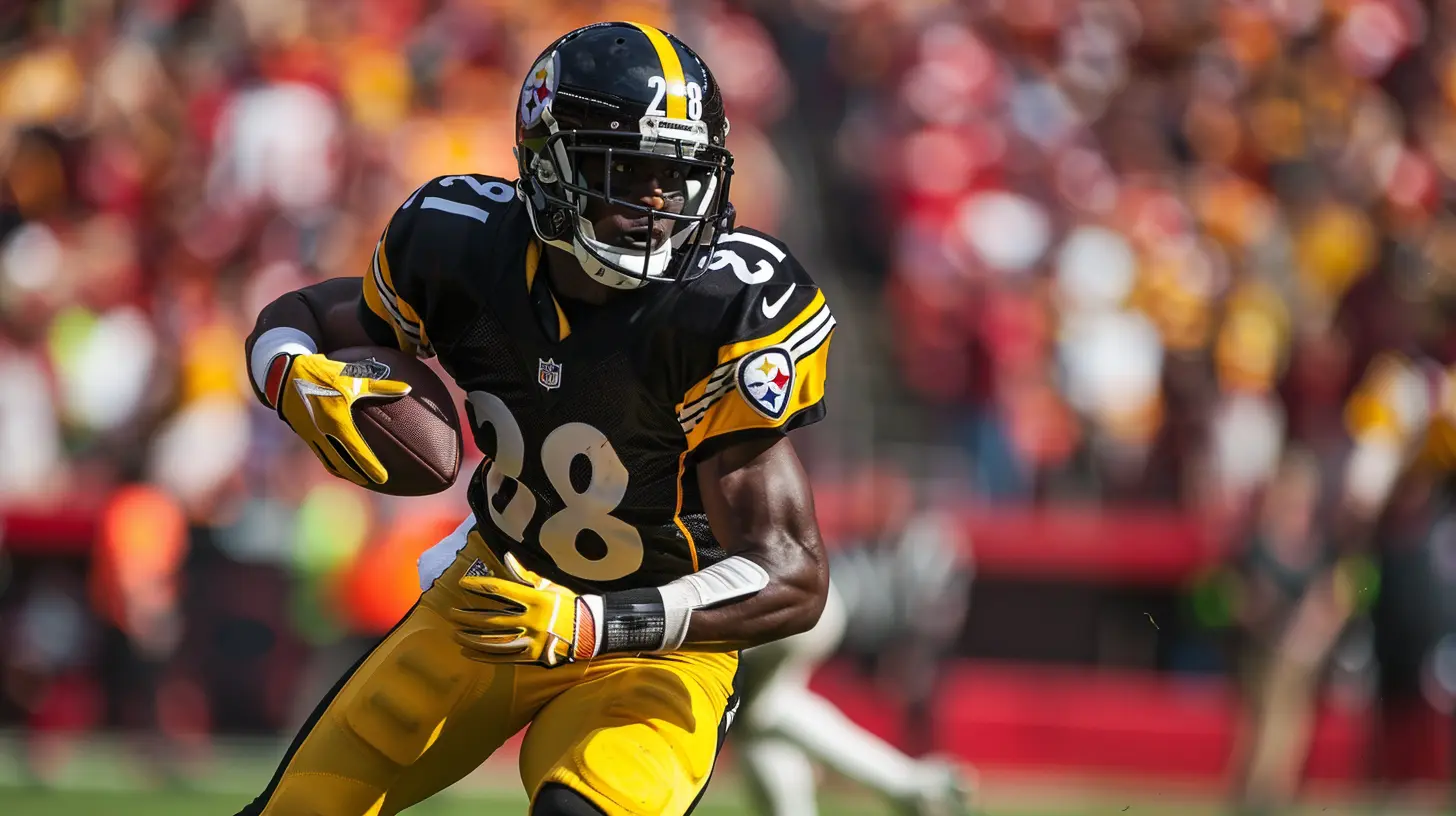The Impact of Coaching Changes on Fantasy Performance
1 November 2025
Let’s face it — fantasy football can be a brutal playground. One week your lineup's unstoppable, the next you’re questioning every draft pick you made in the last five years. But one factor that often gets overlooked in the chaos of injuries, bye weeks, and waiver-wire desperation? Coaching changes.
Yup, coaching shifts — from head coaches to offensive and defensive coordinators — can have a massive ripple effect on players' fantasy values. Whether it’s a new offensive scheme or a coach who just doesn’t jive with a player’s style, these changes can make (or break) a fantasy season.
In this article, we’re taking a deep dive into how coaching shake-ups alter the fantasy football landscape, who gains and who loses, and how you can be ahead of the curve the next time an NFL team decides to “go in a different direction.”
Why Coaching Changes Matter in Fantasy Football
It’s Not Just About the Players
A lot of fantasy managers obsess over player stats, injury reports, and depth charts — and rightfully so. But what about the coach calling the plays, setting the tone, or running the offense? That person has just as much influence over a player's output as the player himself.Remember, coaches dictate tempo, distribution, opportunity, and scheme. A coach with a pass-heavy mindset will pump up WR and QB stats. Want a ground-and-pound offense? That’s RB heaven. Coaching changes shift these dynamics overnight and can turn a top-tier player into a benchwarmer (or vice versa) real quick.
The System Is King
Think of the NFL like a game of chess and coaches as the ones moving the pieces. A player might be a knight in one system and a pawn in another. For real — it all comes down to fit.Let’s say a wide receiver thrives in a vertical passing game. If a new coach comes in with a West Coast offense centered on short, quick passes, that player's fantasy ceiling could plummet. On the flip side, a run-first coach might boost an underused RB into RB1 territory.
The Head Coach Effect: Big Picture, Big Impact
Philosophy Over Specificity
When a new head coach takes the reins, they bring an overarching philosophy — and that sets the tone for everything else. Some coaches are aggressive and love to take shots downfield. Others are conservative and prefer methodical drives.For example, when Sean McVay joined the Rams in 2017, the team went from the NFL’s lowest-scoring offense to the top-ranked in a matter of weeks — and Jared Goff, Todd Gurley, and Cooper Kupp suddenly became fantasy gold.
Leadership Shapes Locker Room Vibes
Fantasy performance doesn't exist in a vacuum. Player morale and locker room dynamics matter — and head coaches are like the quarterbacks of team chemistry. Poor leadership can tank a team's attitude, confidence, and ultimately on-field execution. And guess what suffers next? Fantasy stats.
Offensive Coordinators: The Hidden Fantasy MVPs
Play-Calling Changes Everything
OC changes may not get the headlines, but fantasy veterans know these are the ones to really watch. The play-caller shapes the game's script — the run-pass ratio, red zone tendencies, trick plays, and pace of play.Take Kyle Shanahan. Wherever he goes, fantasy points follow — especially for running backs. Why? Because his zone-run scheme and creative play-calling put players in a position to succeed.
When you hear about a new OC coming in, ask yourself: What’s their background? What’s their style? What’s their track record with similar talent?
Target Distribution and Volume
A new OC could suddenly favor slot receivers. Or tight ends. Or power backs. That means some players become fantasy darlings while others fade into the background.Remember when Adam Gase took over the Jets? His offenses had historically been low-volume and uninspiring, and sure enough, fantasy production cratered. Bell owners still haven’t recovered emotionally.
Quarterbacks: The Touchstone of Coaching Transitions
New Coach, New System, New You?
QBs often feel the brunt of coaching changes the most. They have to learn new terminology, process playbooks, adjust timing, and build chemistry with receivers all over again. Some thrive. Others flounder.When Bruce Arians took over in Tampa Bay, he brought his aggressive, downfield passing game — and Jameis Winston promptly threw for over 5,000 yards... along with 30 INTs. High-risk, high-reward, and a fantasy darling (if you could stomach the turnovers).
Rookie QBs and Development
Coaching changes during a rookie QB’s early years can either polish them into stars or send them spiraling. Continuity matters. But if the new coach is QB-friendly (think Doug Pederson with Trevor Lawrence), you could see massive gains in Year 2 or 3.Running Backs: Scheme + Opportunity = Fantasy Gold
Blocking Schemes Matter
Not all rushing attacks are created equal. Zone schemes, gap runs, RPOs — each demands different skill sets from RBs. A new coaching staff could abandon the skill set a running back thrives in, which means trouble for fantasy managers banking on last season’s numbers.Look at LeSean McCoy when he moved from Philly’s Chip Kelly offense to Buffalo’s under Rex Ryan — his usage and effectiveness shifted, and so did his fantasy value.
Usage in the Passing Game
A coach who utilizes running backs in the passing game (hello, Christian McCaffrey under Joe Brady) can turn a decent PPR option into an elite one. A coaching change can mean more screens, angle routes, and dump-offs — or it can mean your RB becomes a glorified pass blocker.Wide Receivers and Tight Ends: Feast or Famine?
Route Trees and Targets
Receivers are often the biggest beneficiaries (or victims) of coaching changes. A new offensive coordinator could design a game plan that feeds a WR1 with double-digit targets weekly — or spreads the ball around and cuts into target share.Take Stefon Diggs moving to Buffalo under Brian Daboll — his target share went through the roof, and he became an instant WR1.
Tight End Usage: An OC’s Personal Preference
Tight ends are especially sensitive to scheme changes. Some offenses use TEs as glorified linemen (sorry, blocking fans), while others put them in mismatch-heavy roles (lookin’ at you Travis Kelce and George Kittle).A coaching change can either unlock a previously underused TE or banish them to fantasy obscurity. It’s that unpredictable.
Defensive Changes... And Why They Matter Too
Indirect Fantasy Impact
Yeah, we know — defense doesn’t score a ton of fantasy points unless you're in a D/ST league. But coaching changes on that side of the ball can still have an impact.A more aggressive defense generates turnovers and short fields, which means more scoring chances for your offensive guys. A bend-don’t-break style? That’ll slow the game down and reduce possessions.
Also, if a defense becomes porous? Teams end up playing catch-up more often, which boosts pass attempts and garbage-time fantasy points. We’re always down for some good ol’ garbage-time magic.
How to Factor Coaching Changes into Your Fantasy Draft Strategy
Do Your Homework
Don’t just look at a player’s ADP (average draft position) and assume it's the whole story. Dig into the coaching staff. Read up on their schemes. Check past tendencies. Know who calls the plays. Coaching context is the secret sauce for separating smart managers from the rest.Track Offseason Moves and Press Conferences
Coaches love to play coy, but offseason interviews, mini-camps, and beat reporter insights can give you major fantasy clues. Are they leaning toward a committee backfield? A pass-heavy offense? A fullback renaissance (hey, it could happen)?Be Ready to Adapt In-Season
Coaches evolve (or crumble) during the season. If a team switches play-callers mid-year or if the offense completely shifts gears, fantasy values might swing bigtime. Stay on top of trends, and don’t be afraid to sell high or buy low based on coaching dynamics.Real-Life Examples That Changed the Fantasy Game
- Matt LaFleur with the Packers (2019): Brought balance and efficiency to Green Bay’s offense, elevating Aaron Jones into an RB1.- Frank Reich with the Colts (2018): Helped Andrew Luck post the best completion percentage of his career and turned Eric Ebron into a top-5 TE.
- Arthur Smith with the Falcons: Changed the run-pass balance, hurting Calvin Ridley’s fantasy ceiling while boosting Cordarrelle Patterson into the spotlight.
- Nathaniel Hackett with the Broncos (2022): Expectations were sky-high with Russell Wilson, but poor coaching execution tanked nearly every fantasy-relevant player on the team.
Final Thoughts
At the end of the day, coaching changes might not be as flashy as a blockbuster trade or a breakout preseason star, but they’re just as important — if not more so — when evaluating fantasy football value.Want the edge in your league? Start paying attention to who’s wearing the headset. Because sometimes, the biggest difference between fantasy greatness and disappointment isn’t the player…it’s the person calling the shots.
all images in this post were generated using AI tools
Category:
Fantasy SportsAuthor:

Uziel Franco
Discussion
rate this article
1 comments
Silas Heath
Great insights! Coaching changes can truly reshape a team's dynamics and player performance. Embracing adaptability is key in fantasy sports—those who stay informed can seize unexpected opportunities. Remember, each change brings a chance for growth and new strategies. Let's embrace the excitement this season!
November 1, 2025 at 3:51 AM

Uziel Franco
Thank you! Absolutely, coaching changes can significantly influence player performance and strategy in fantasy sports. Staying adaptable is essential for capitalizing on new opportunities. Exciting times ahead!


